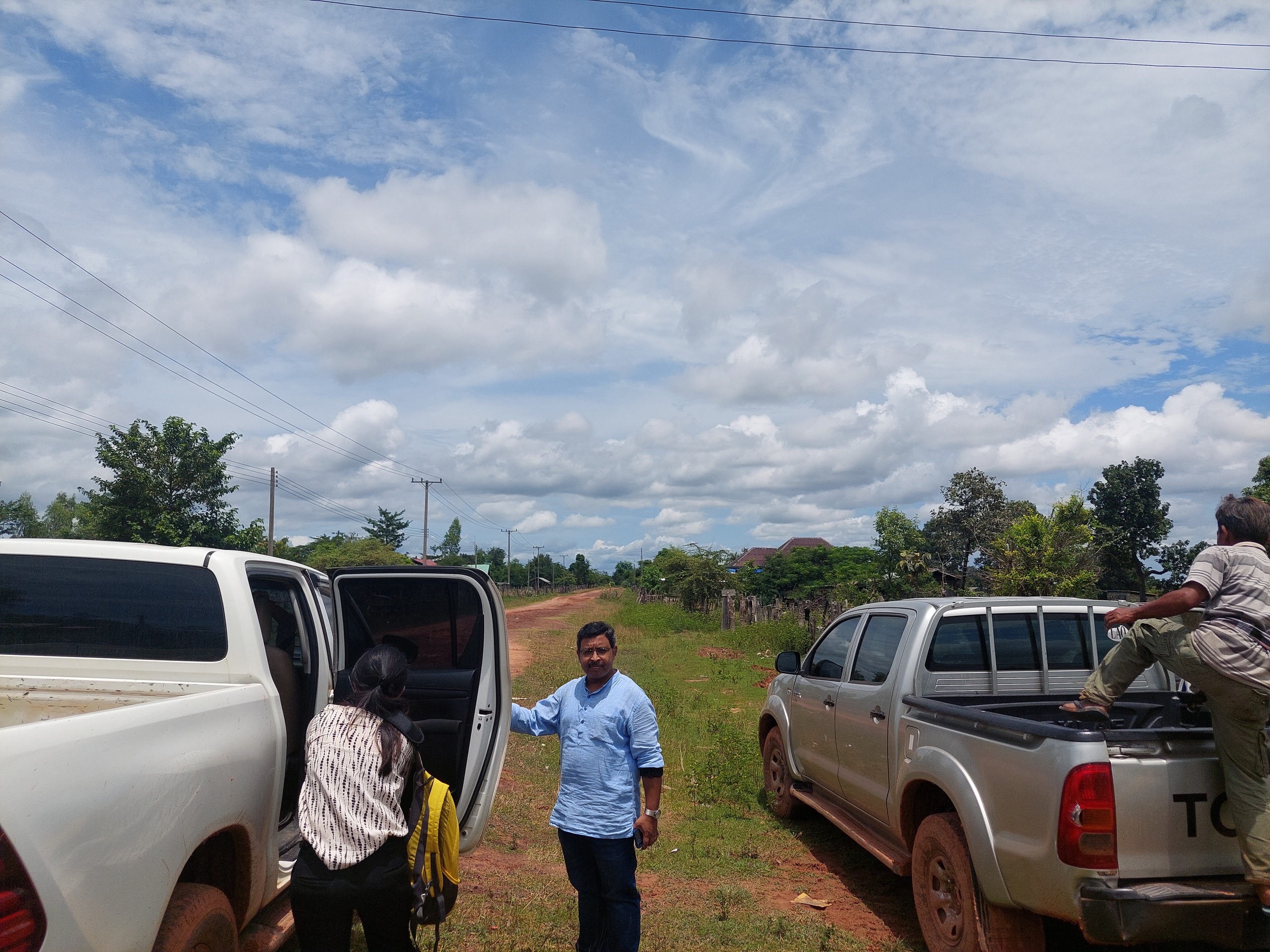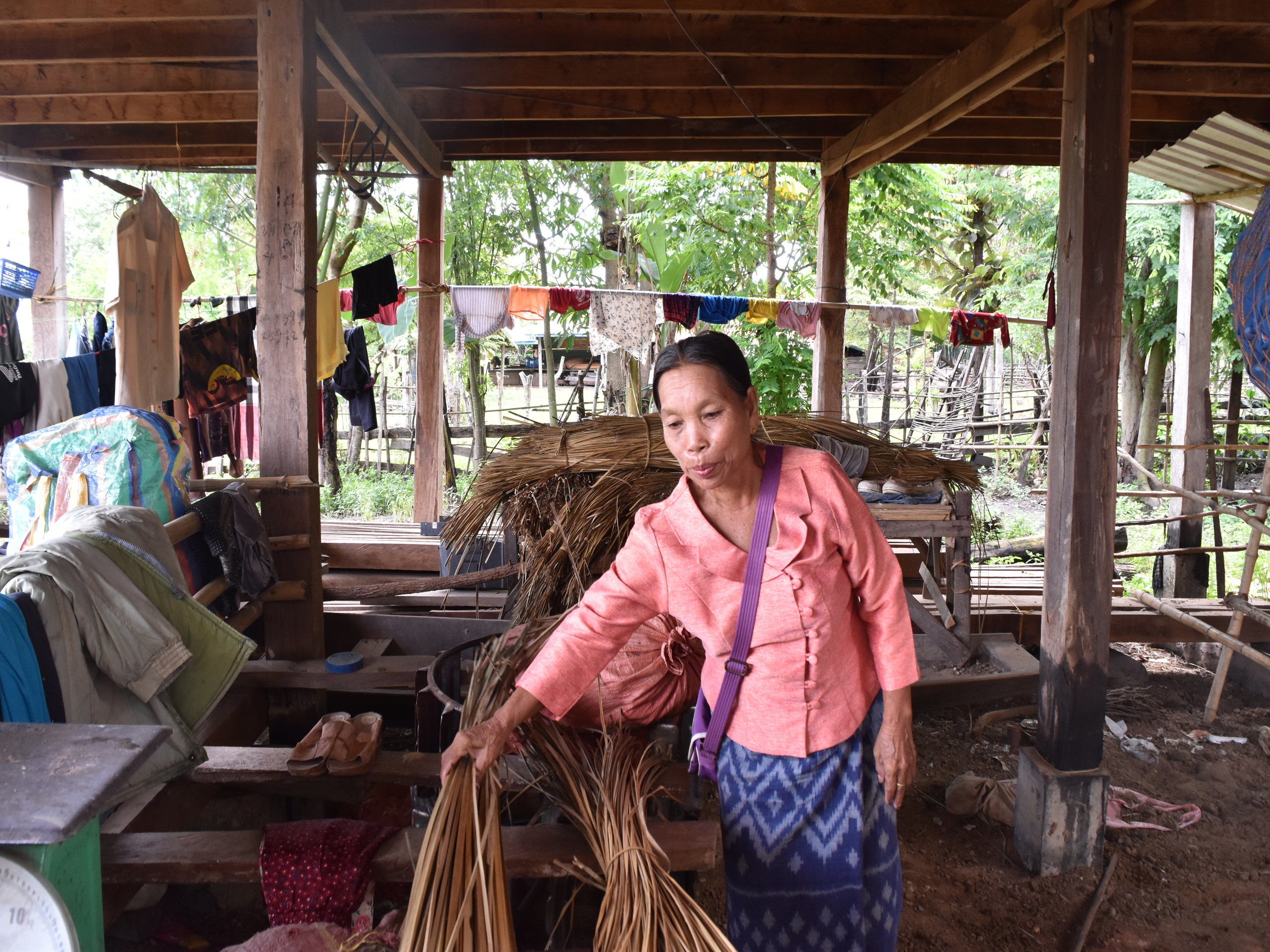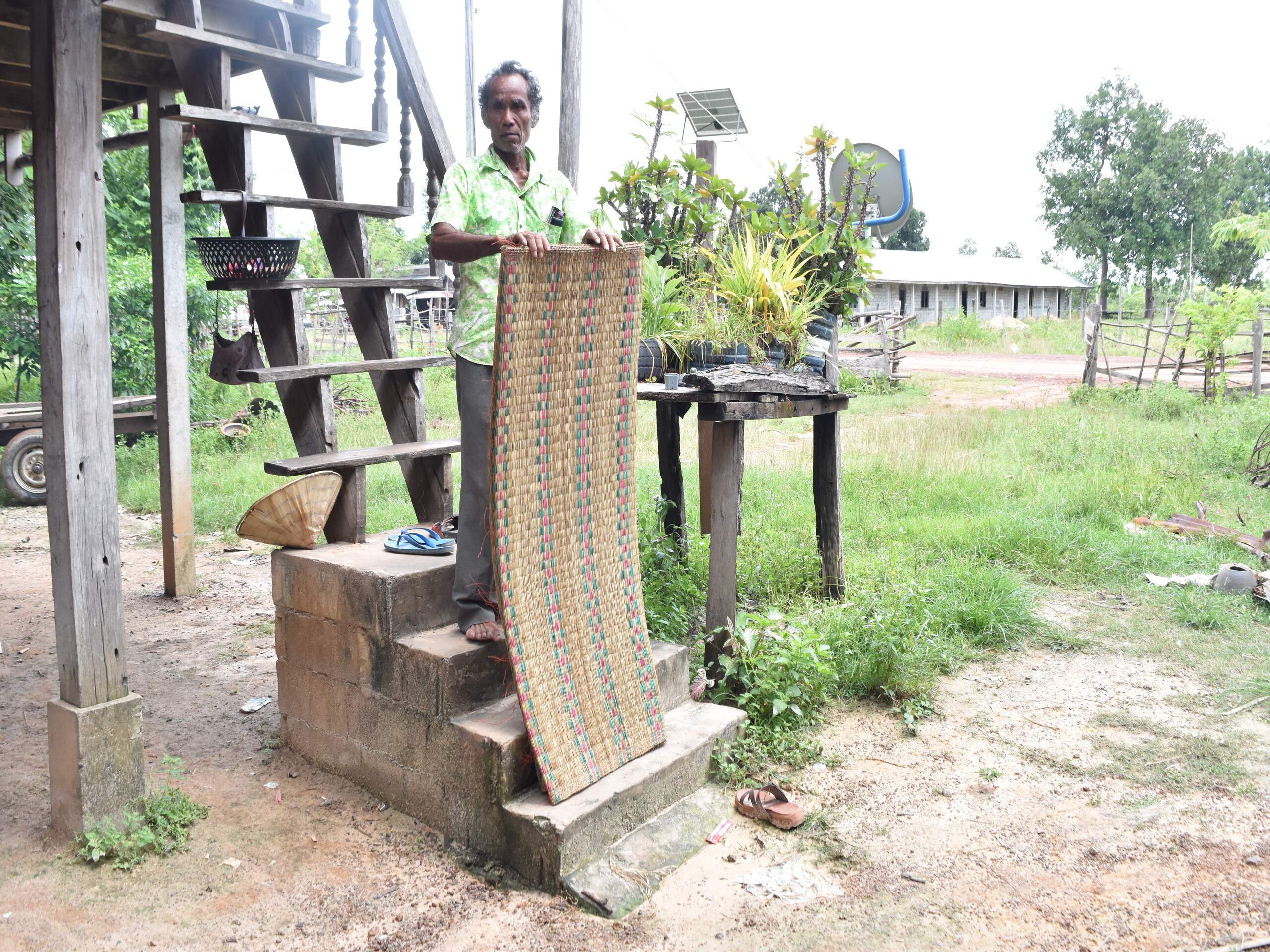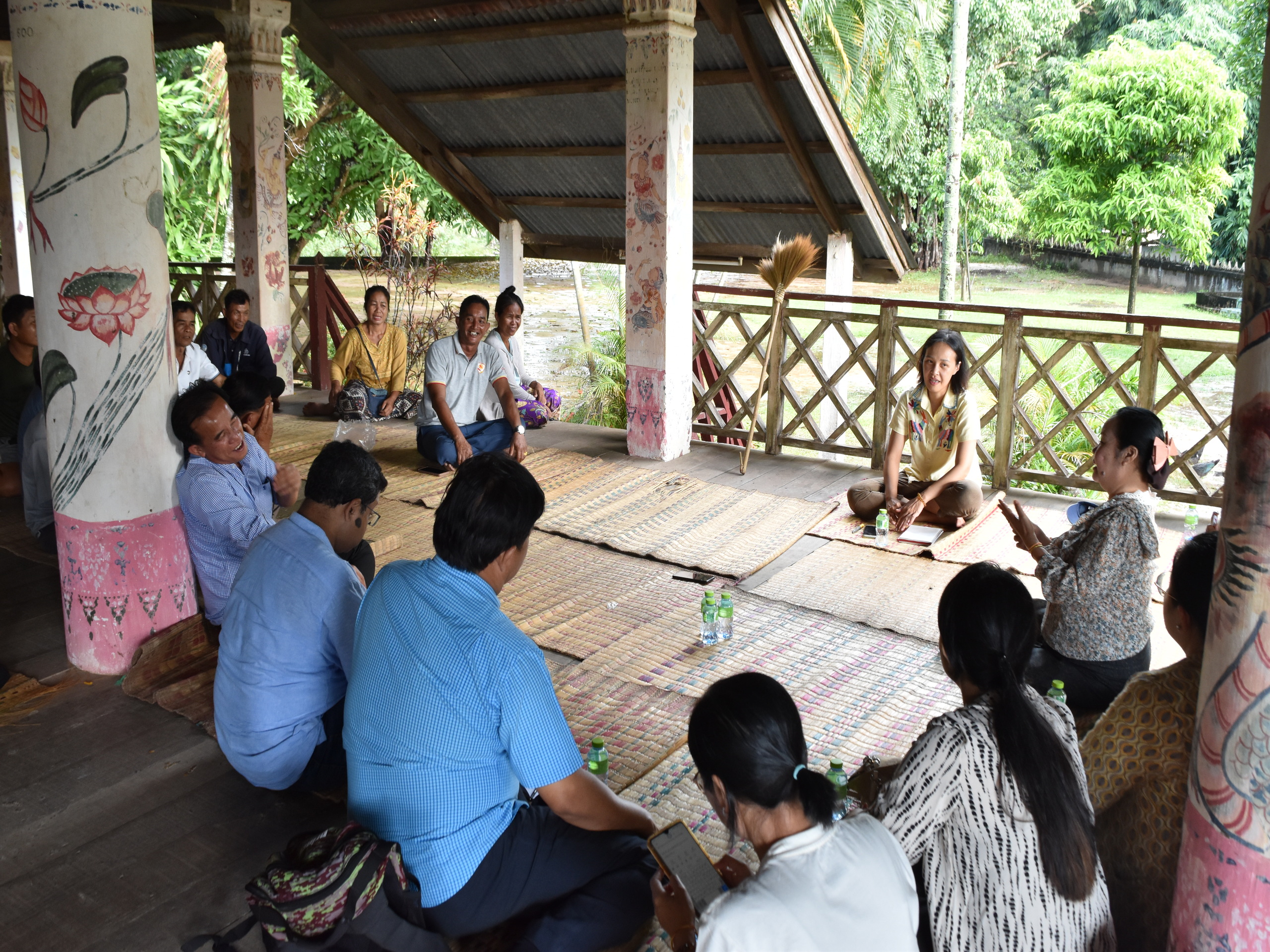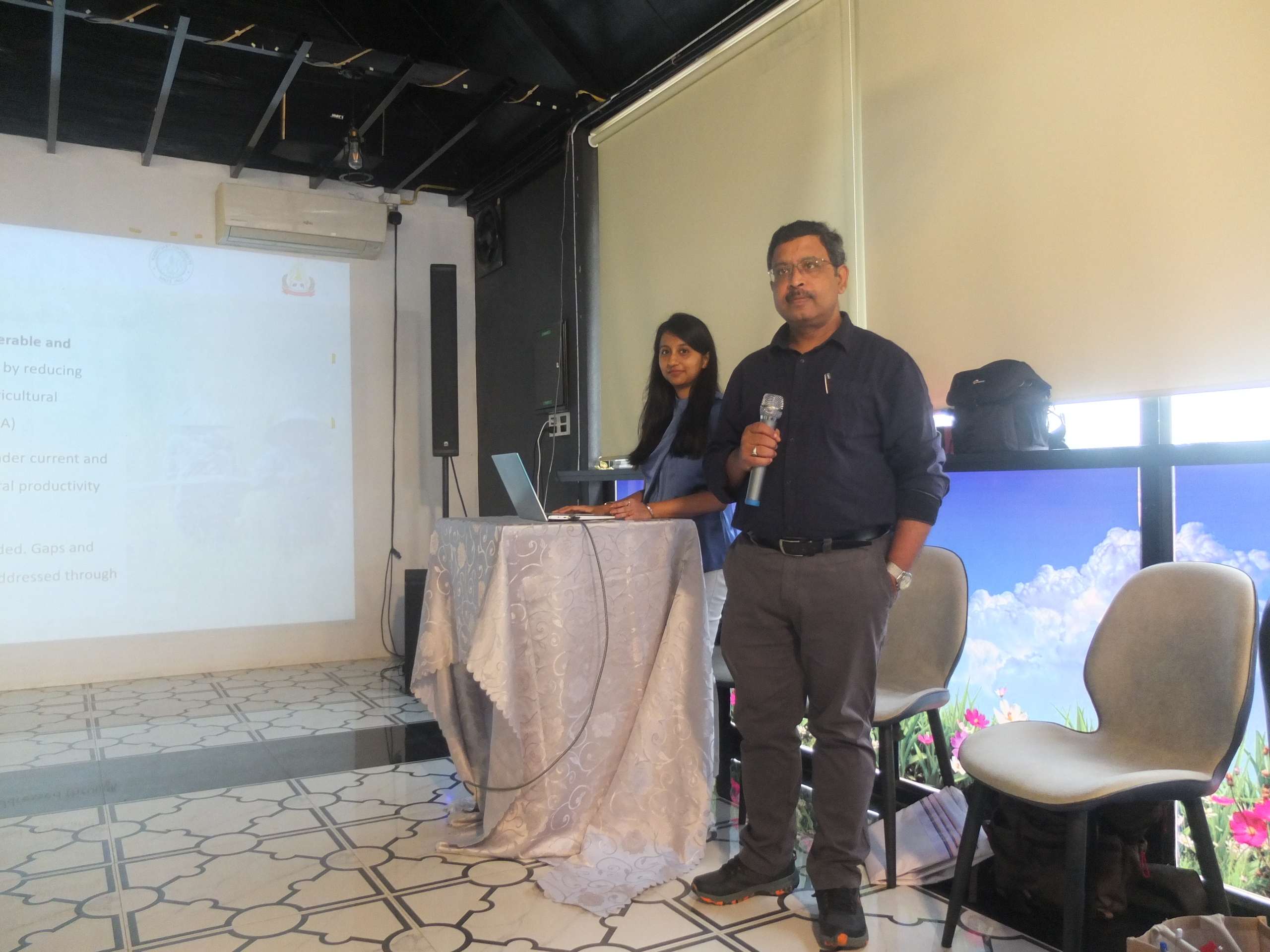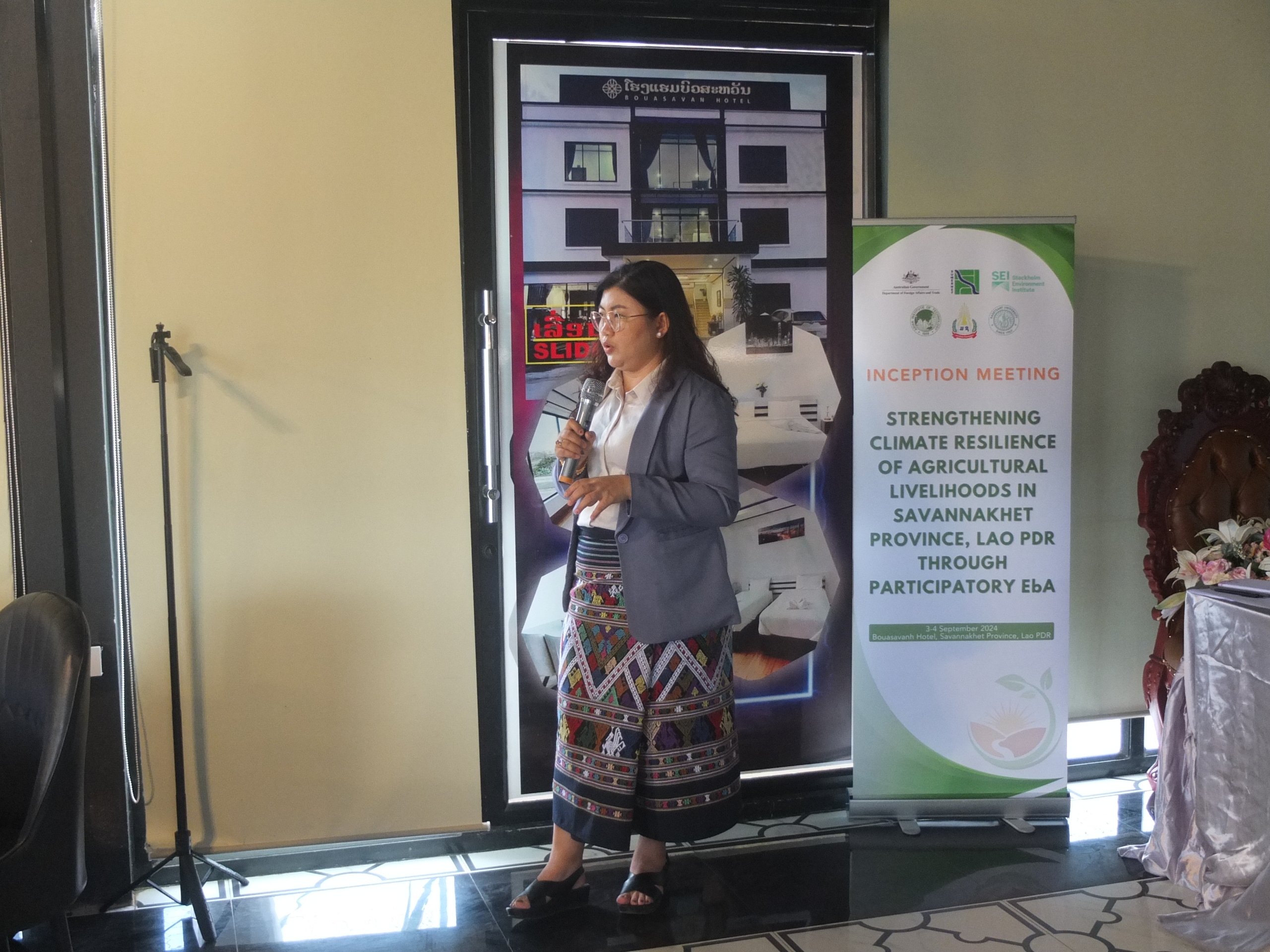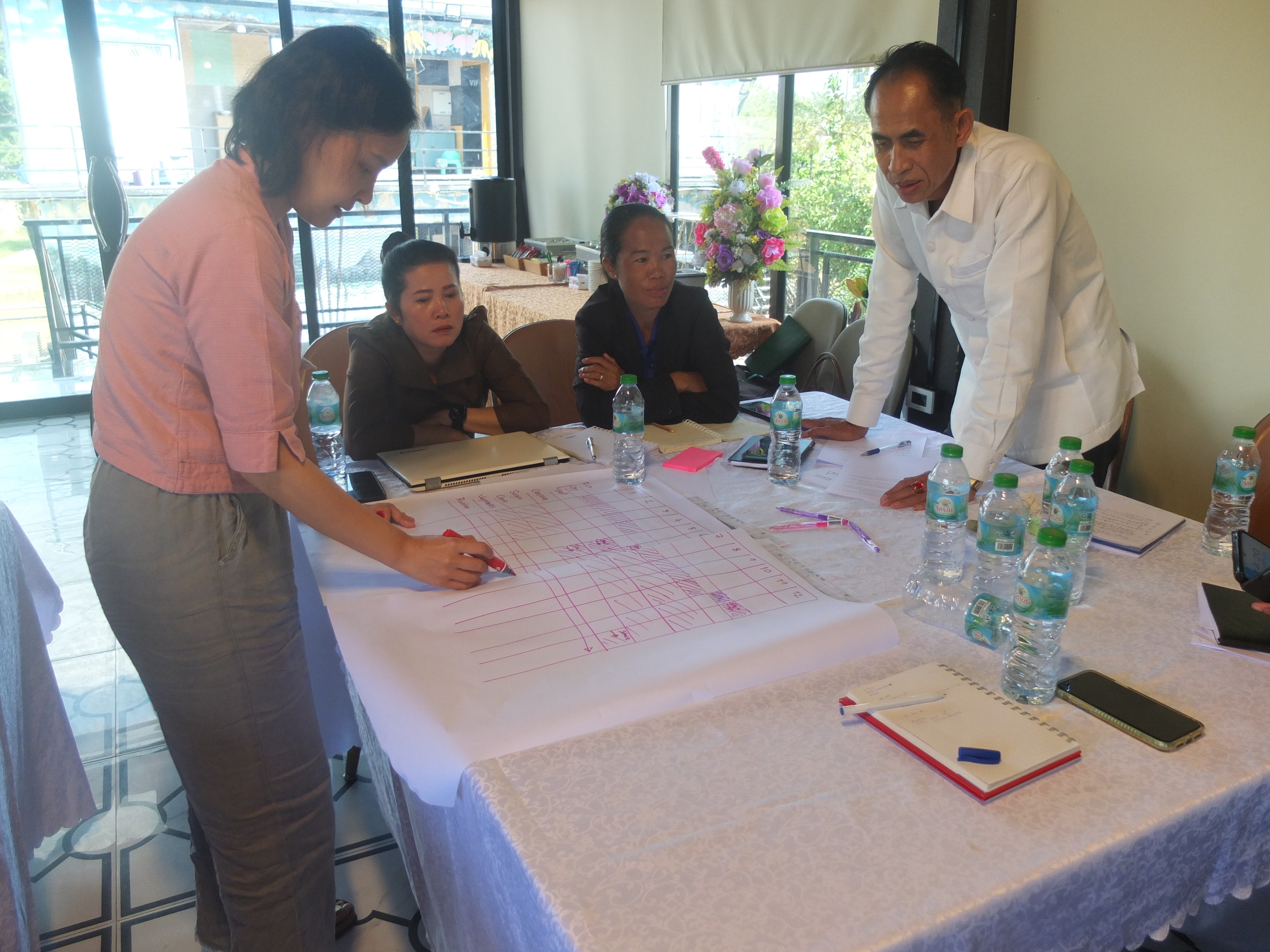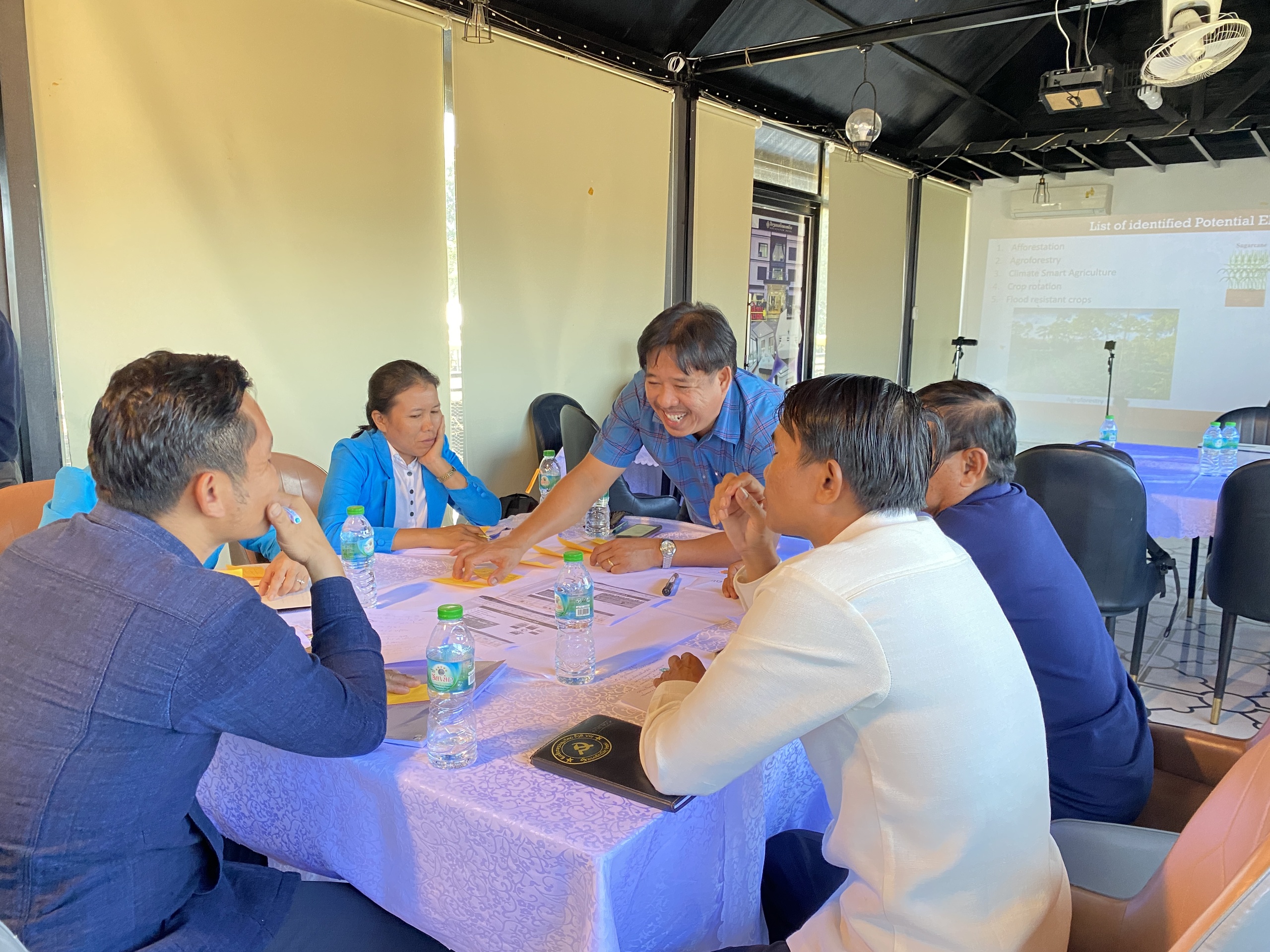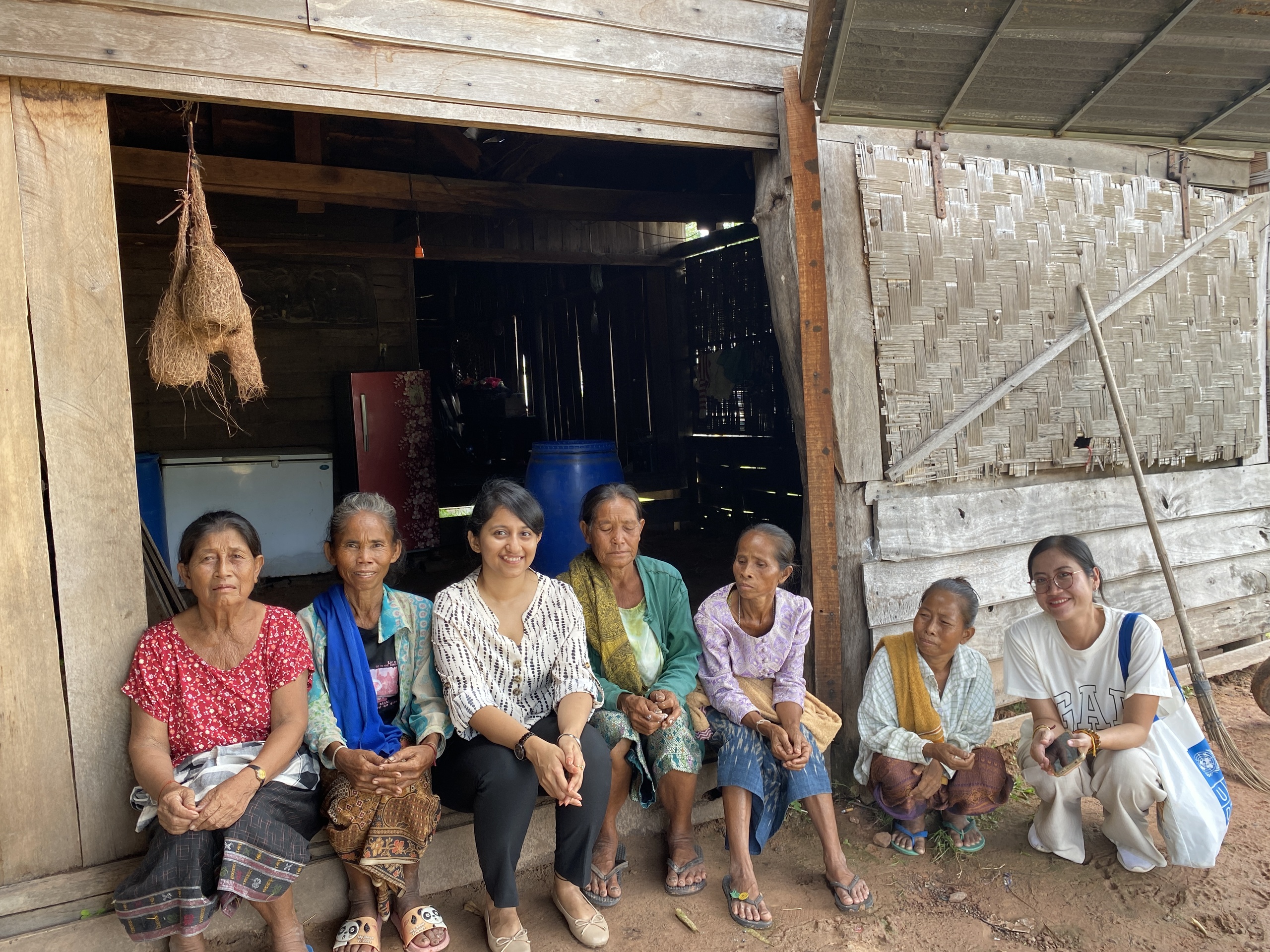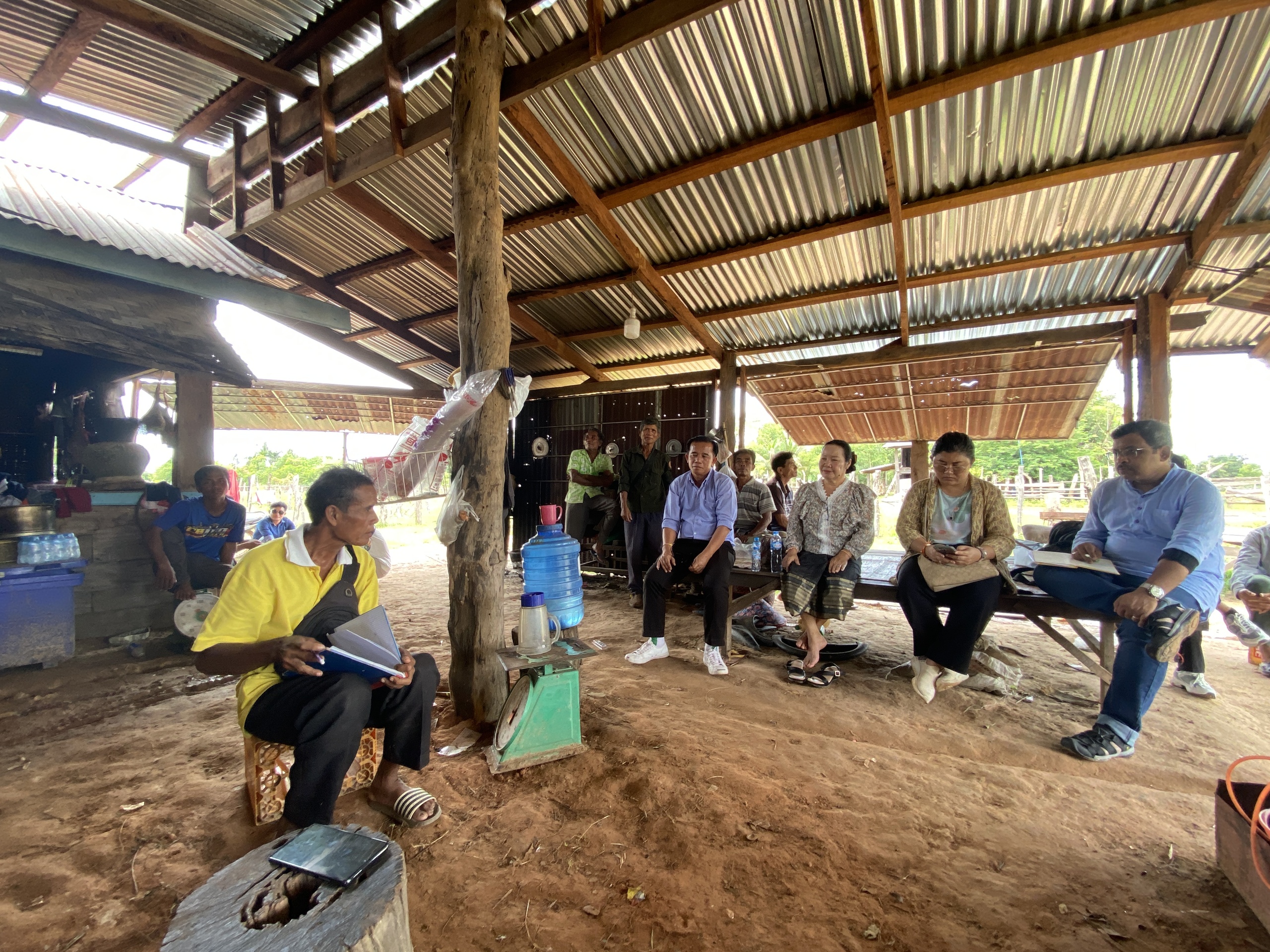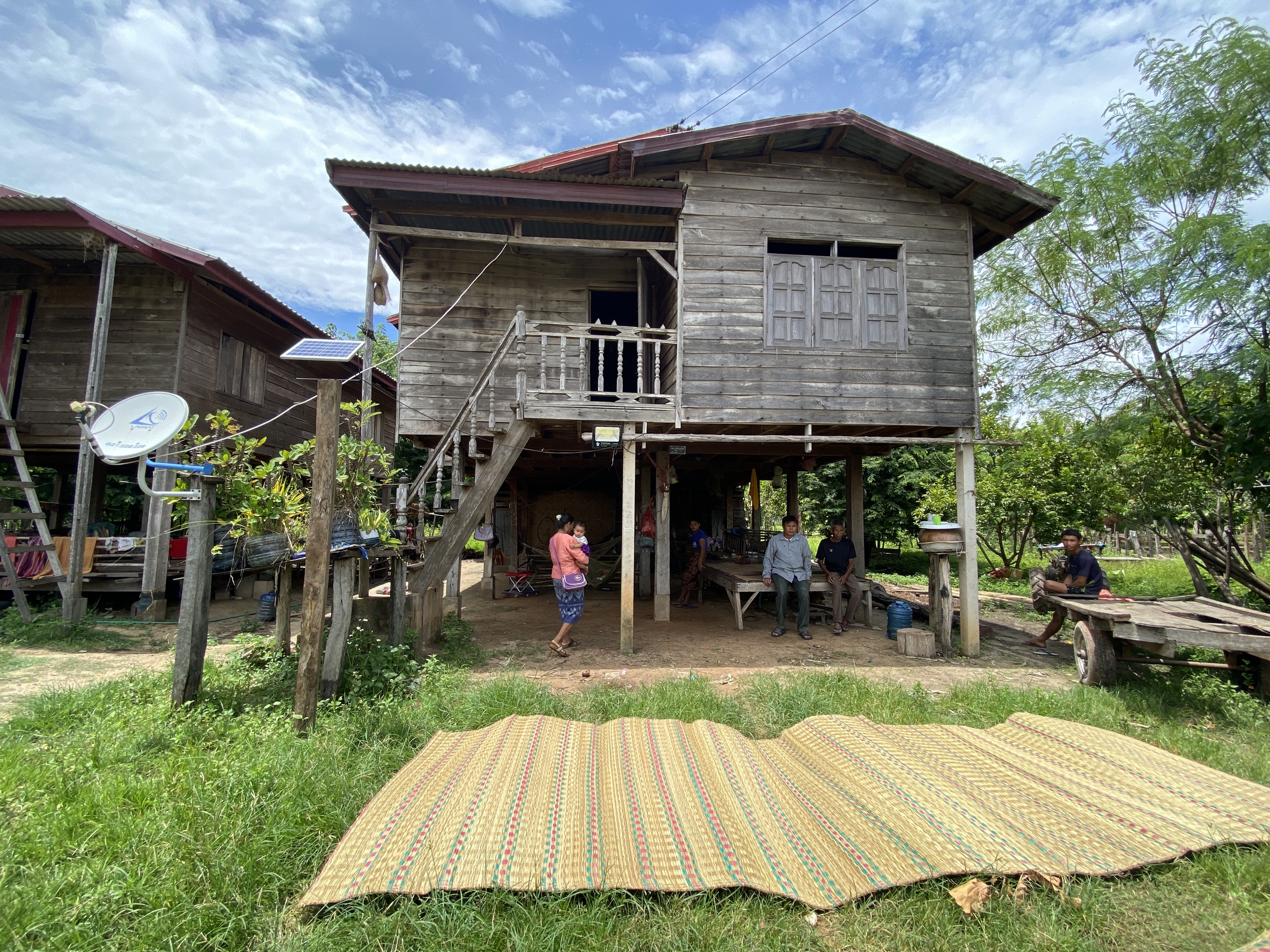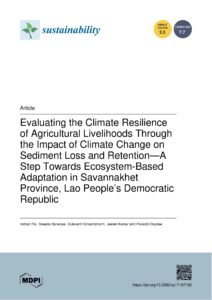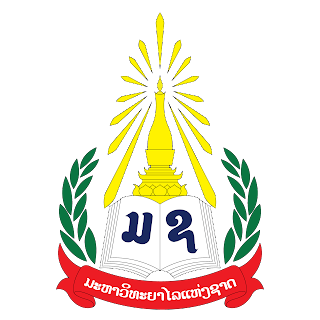
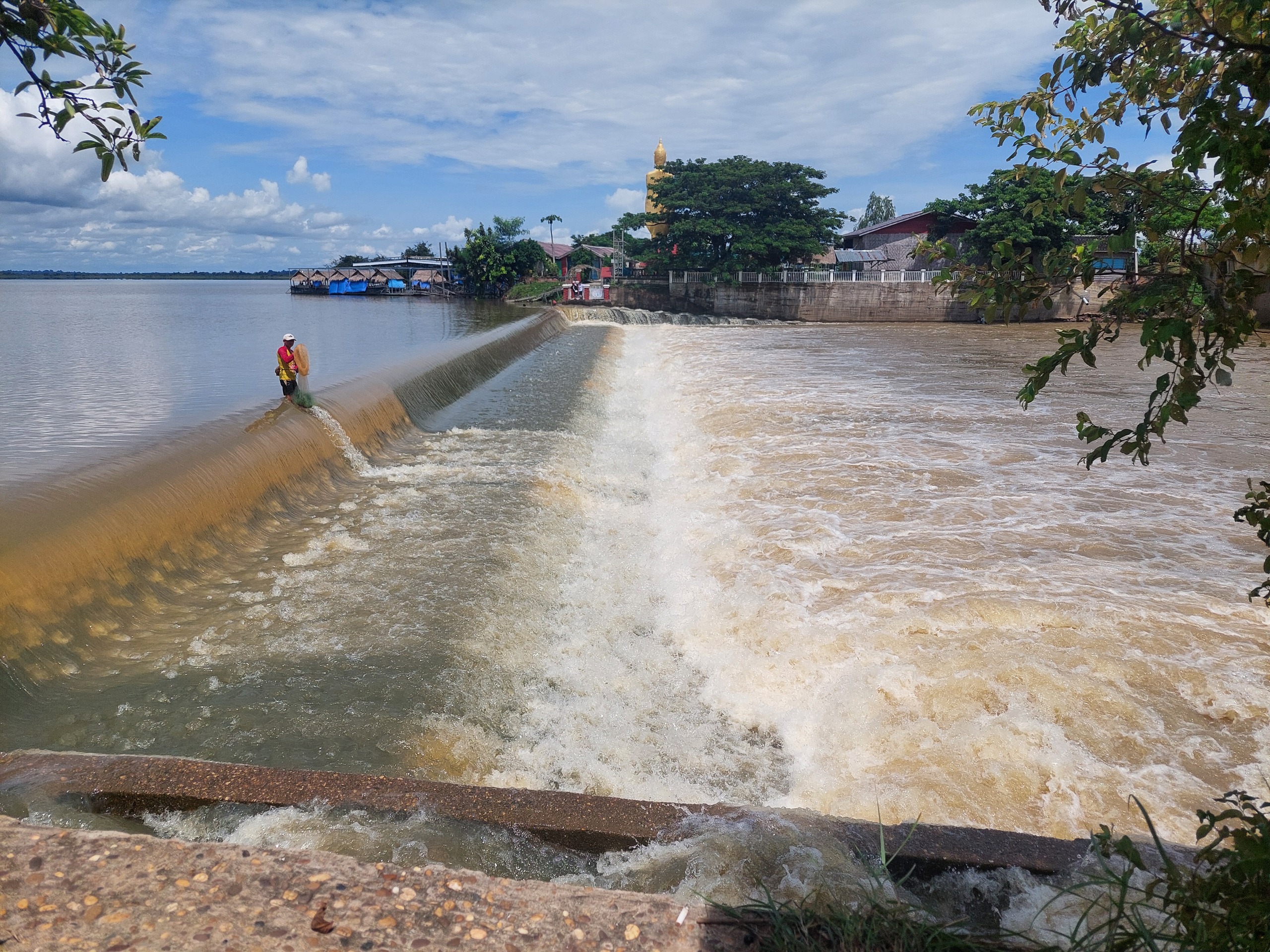
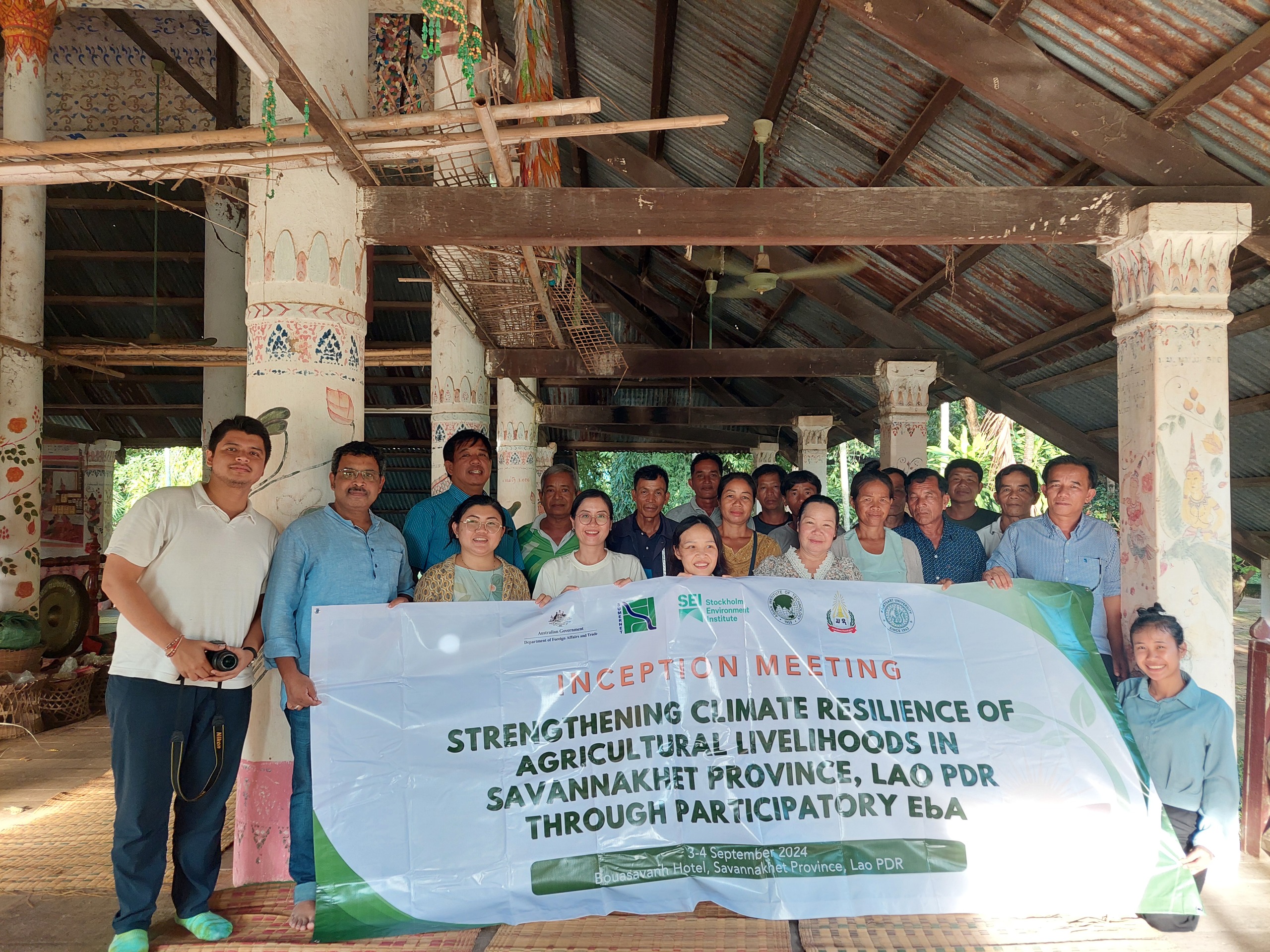
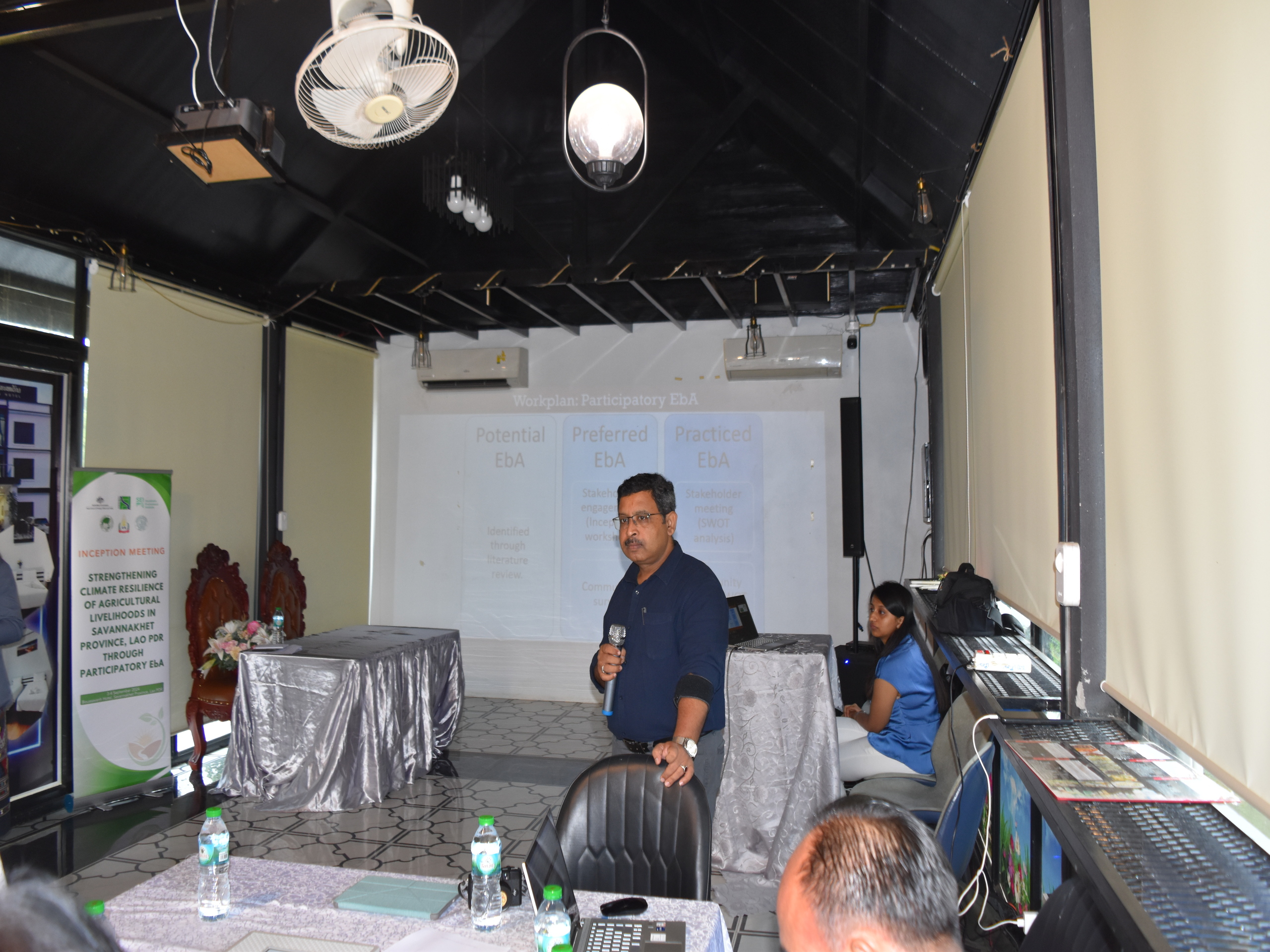
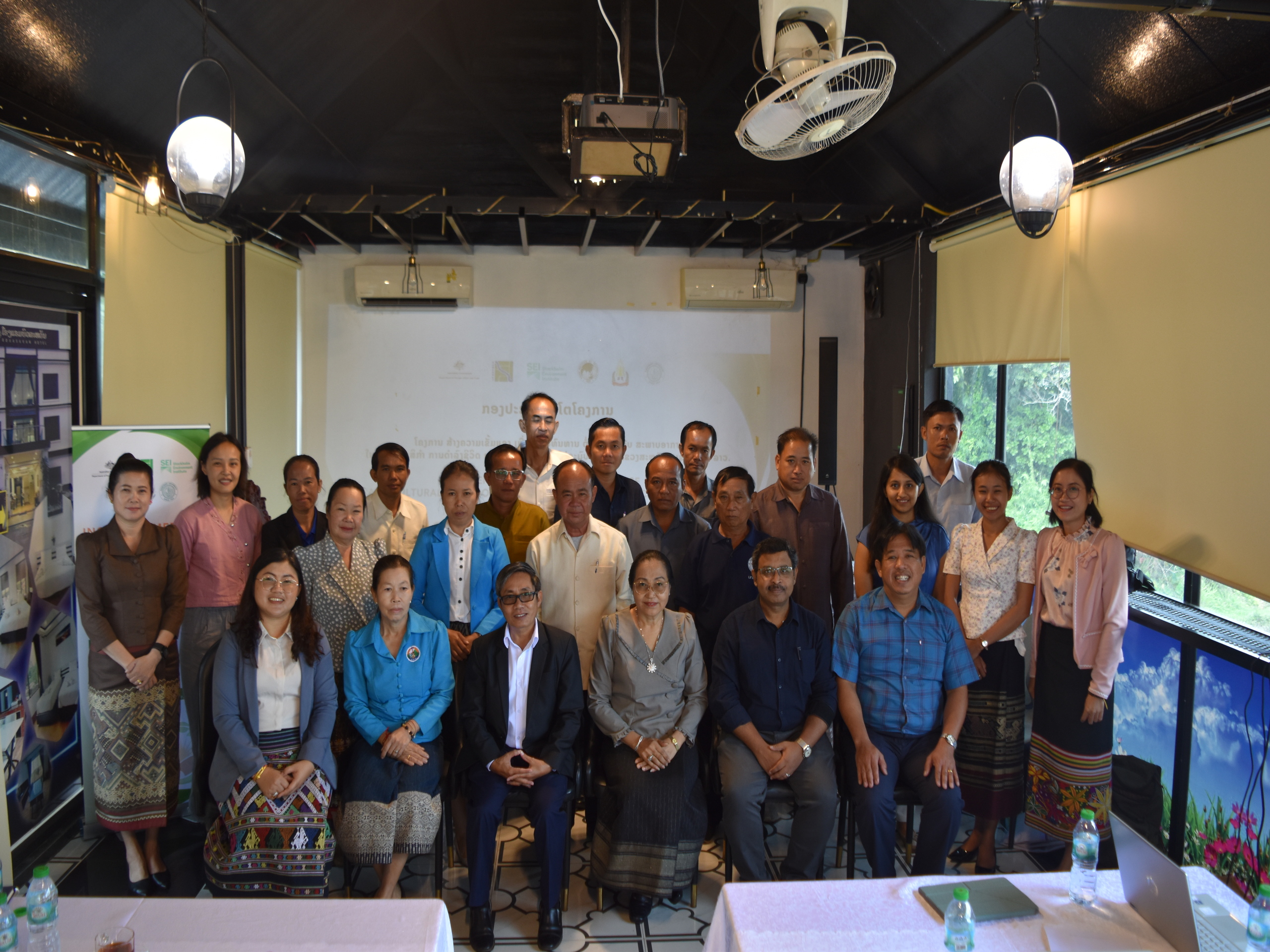
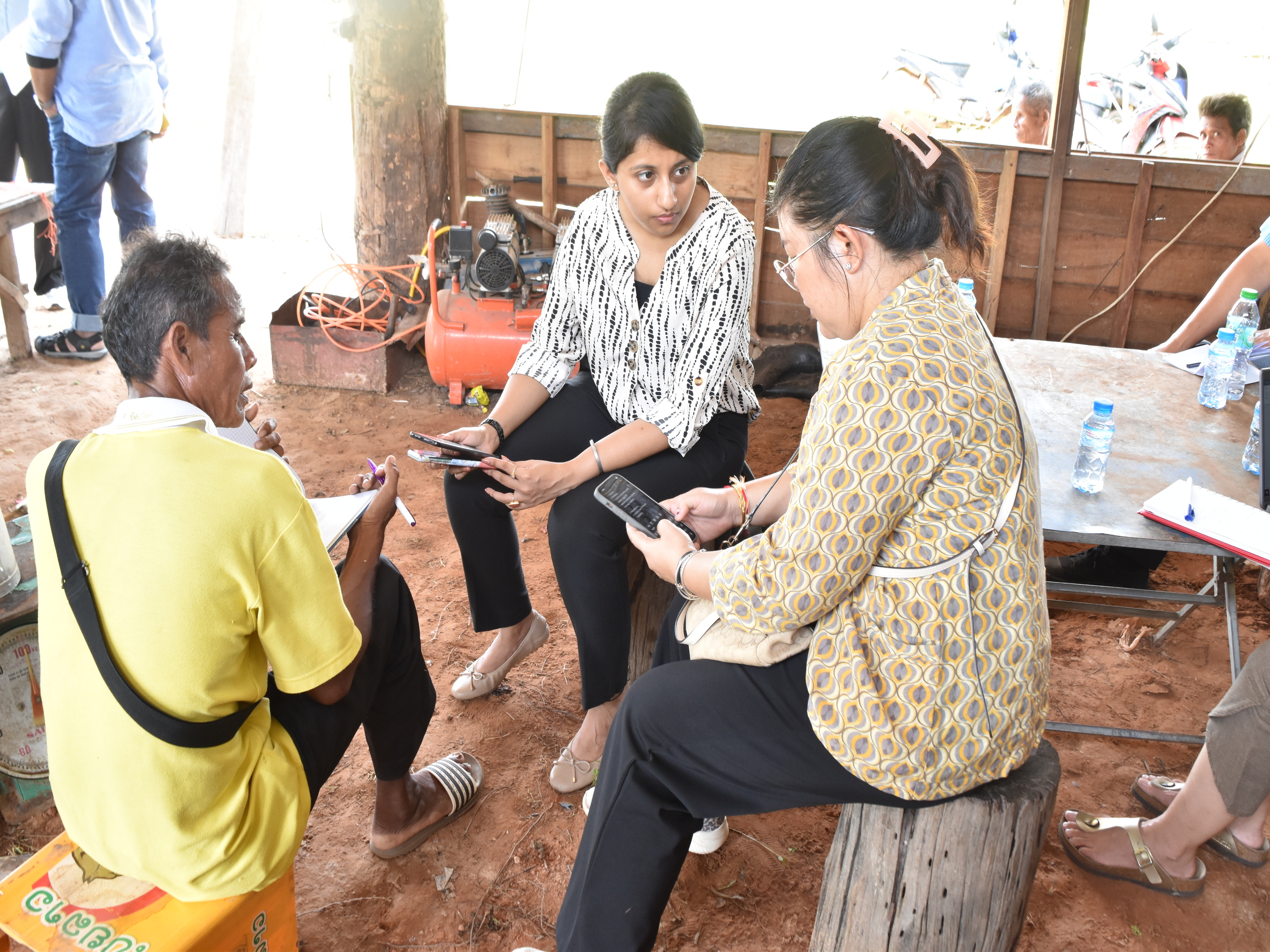
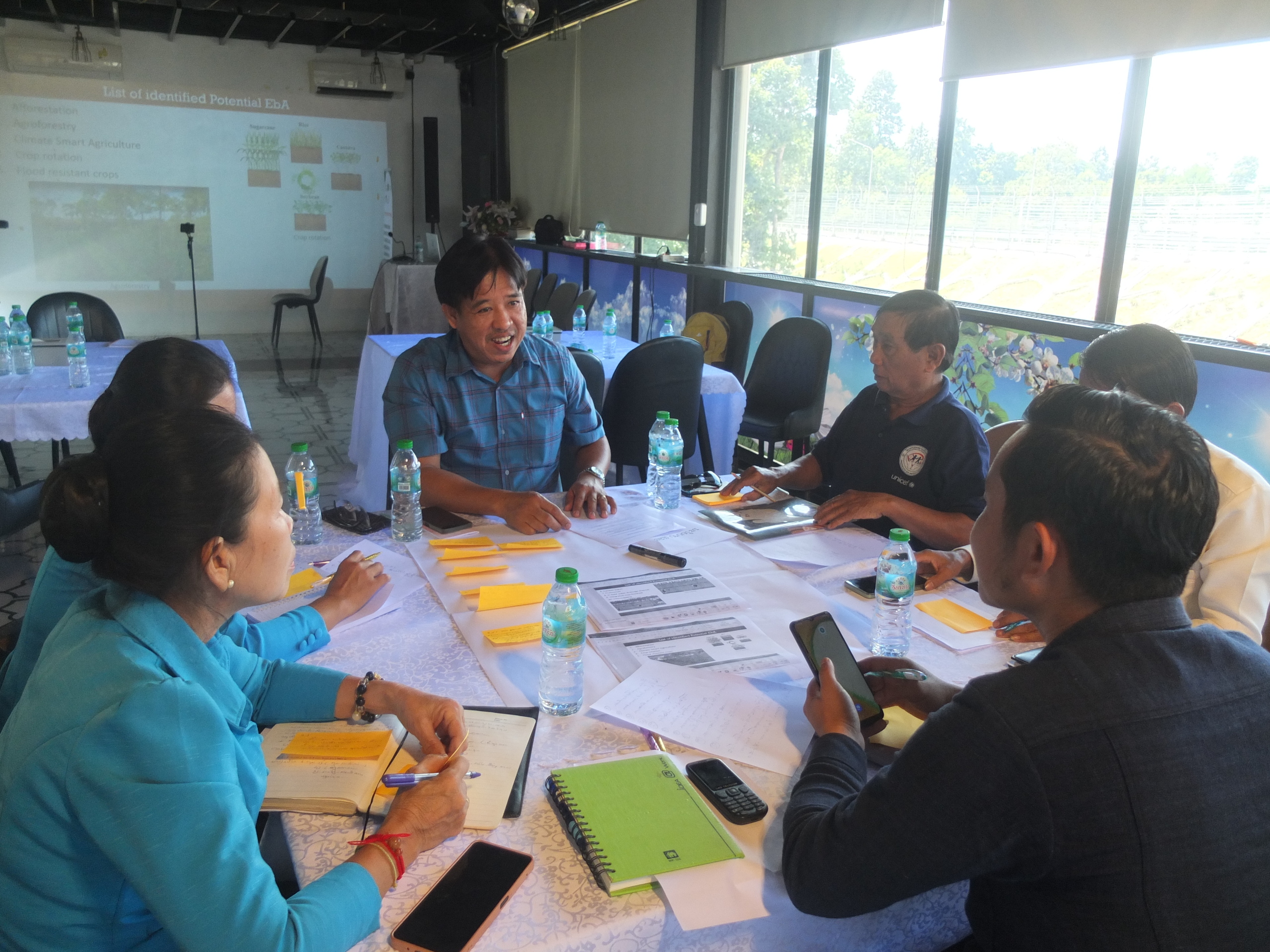
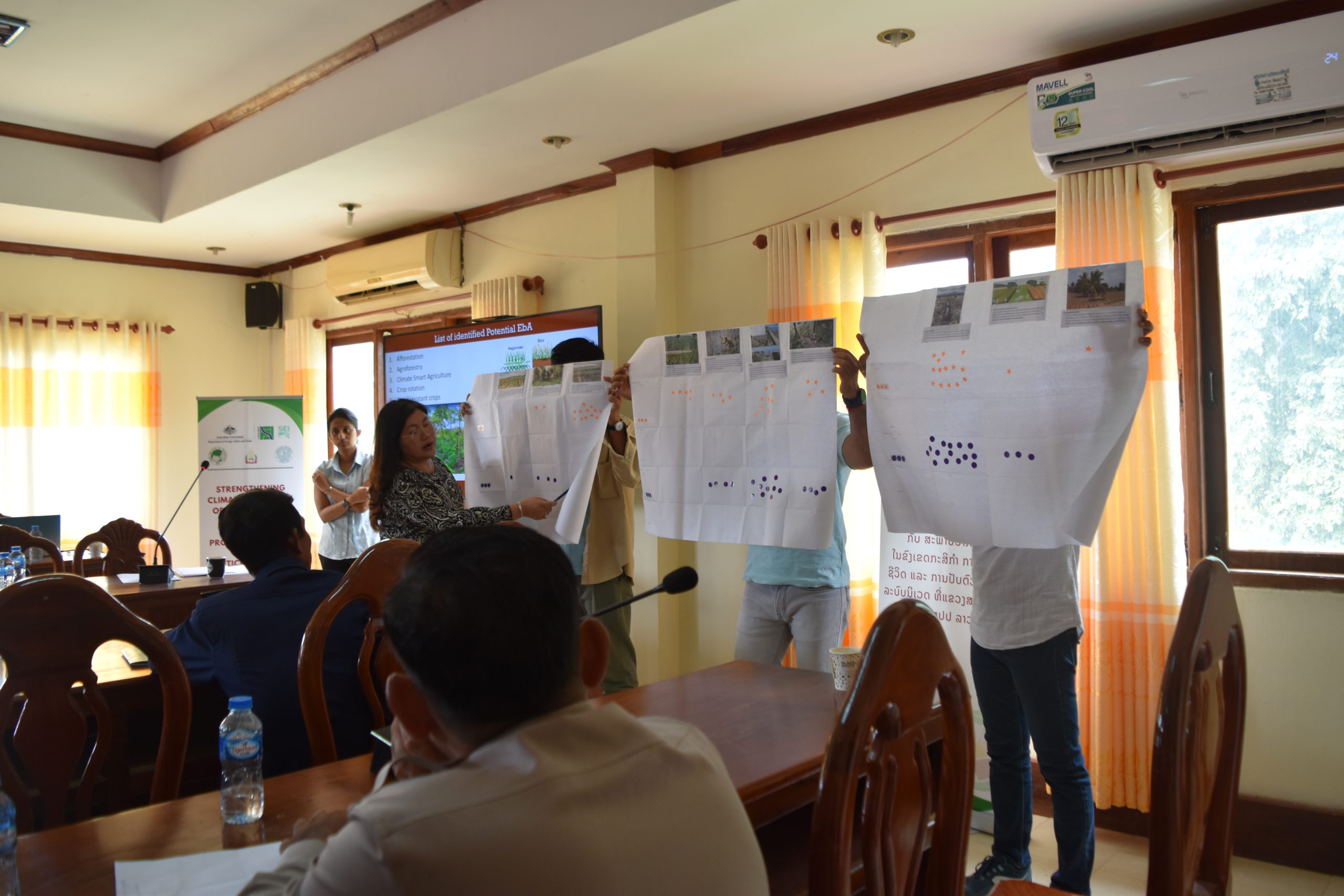
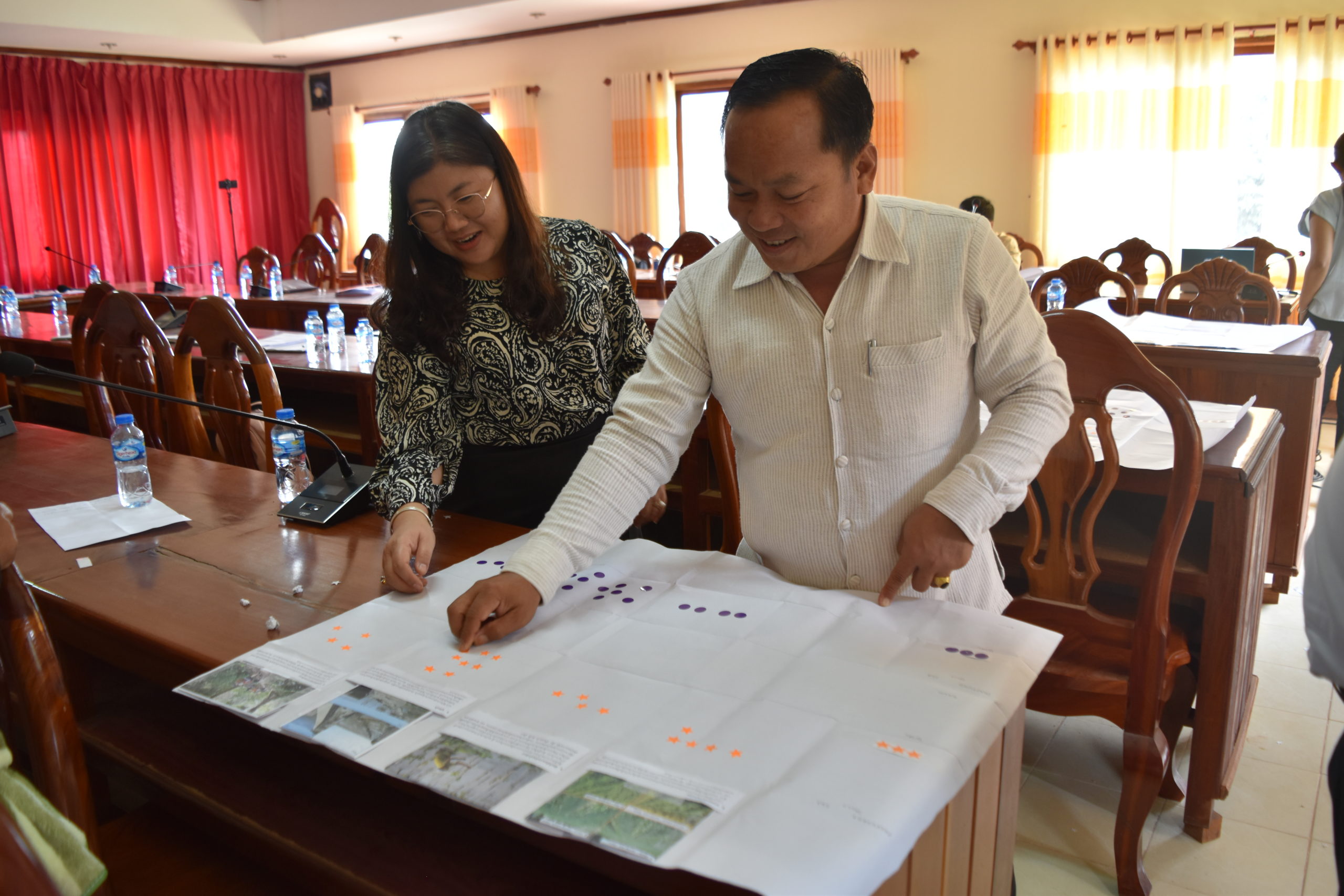
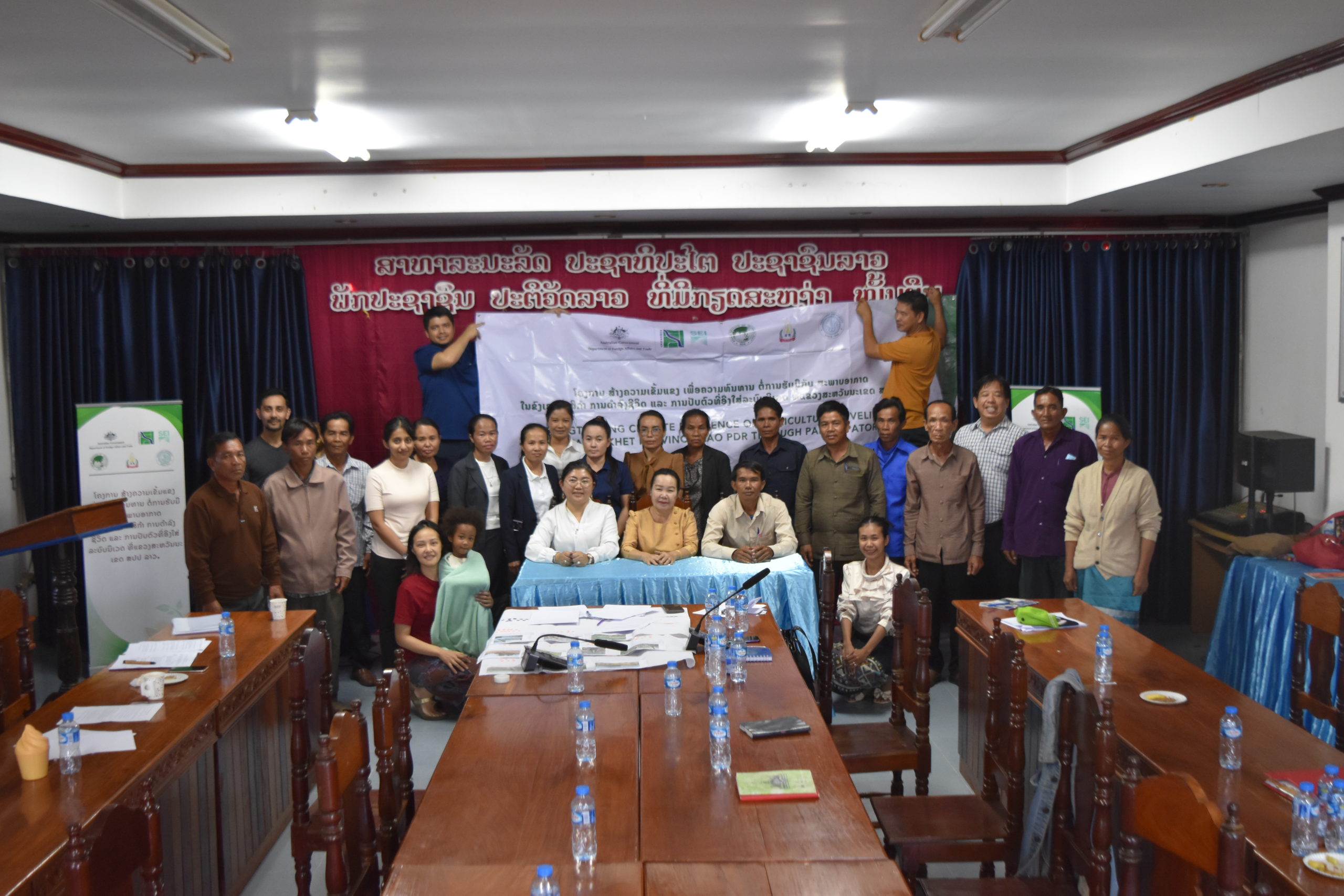
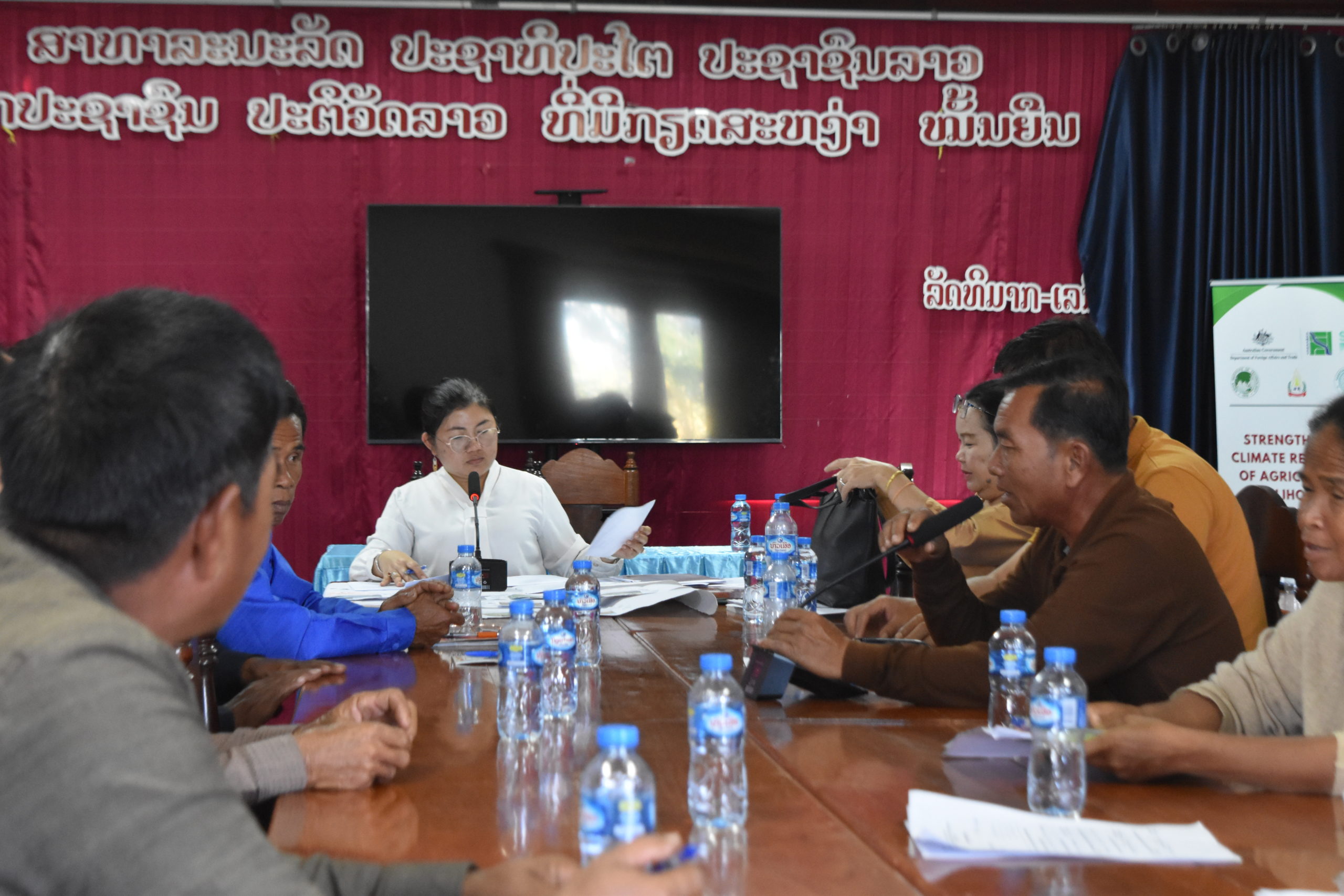
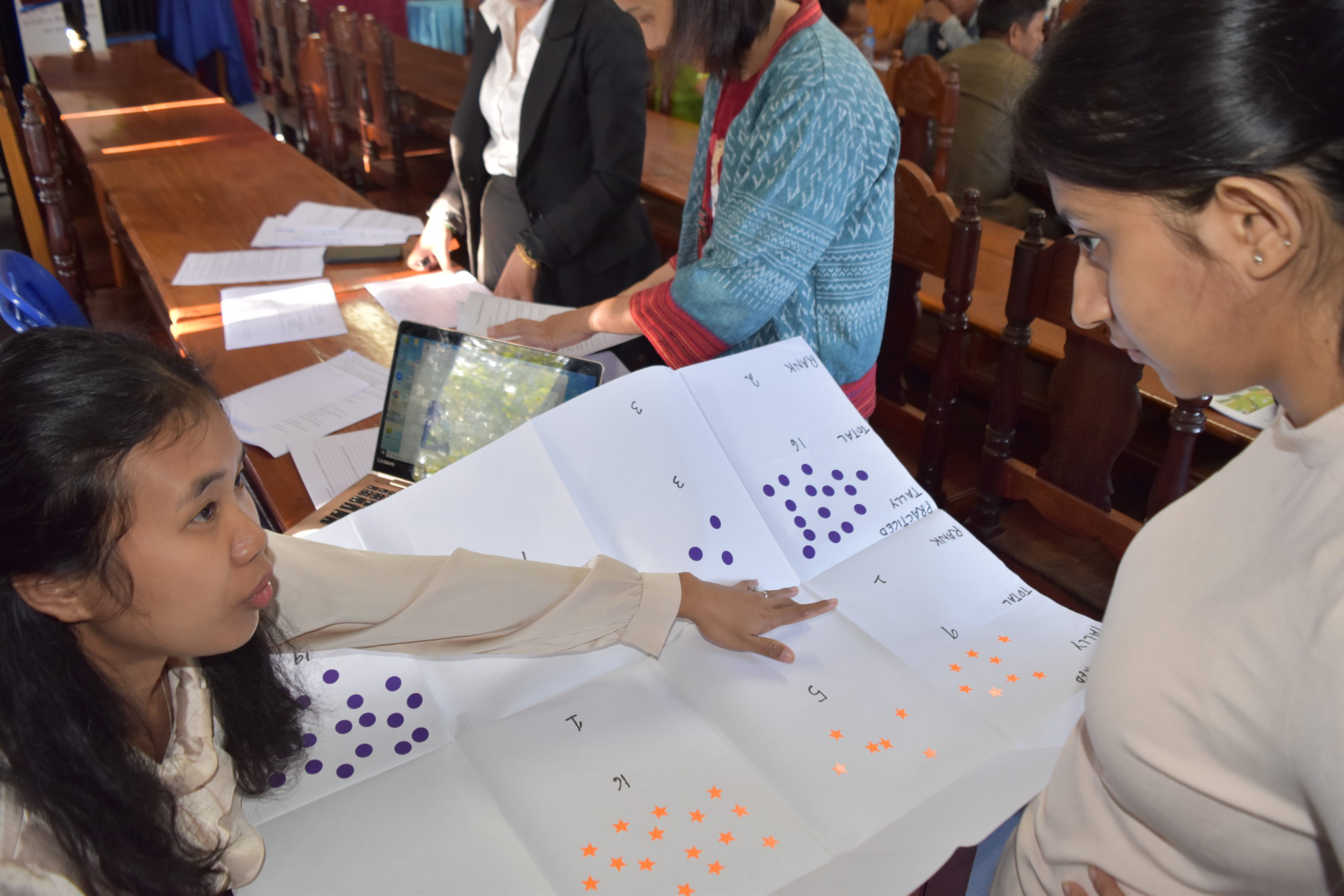
About the Project
Lao People’s Democratic Republic (Laos) is a landlocked Least Developed Country (LDC) in Southeast Asia with a population of over 7.3 million people in 2020. Lao PDR has a strong agriculture sector which contributes close to 30% of the country’s GDP and supports the livelihoods of about 80% of the population. Natural hazards, climate change, and anthropogenic stressors have led to adverse impacts on the country’s water-energy-climate nexus, affecting the livelihoods of the population and its economy.
This project “Strengthening climate resilience of agricultural livelihoods in Savannakhet Province, Lao PDR through participatory Ecosystem-based Adaptation” was aimed at identifying potential, preferred, and practiced ecosystem-based adaptation to enhance the livelihood resilience of agricultural communities.
Implemented by the Asian Institute of Technology’s Disaster Preparedness Mitigation and Management Program in collaboration with National University of Laos and Kasetsart University Chalermphrakiat Sakhon Nakhon Province Campus, the project analyzed environmental and ecosystem services and engaged with a broad range of local and national stakeholders, including agricultural households and marginalized groups to assess the enablers and barriers of EbA implementation in Savannakhet Province while incorporating robust GEDSI principles to promote inclusivity and equitability.
The project was funded by Stockholm Environment Institute (SEI) Asia and Department of Foreign Affairs and Trade, Government of Australia under the MTT Rapid Response Grant.
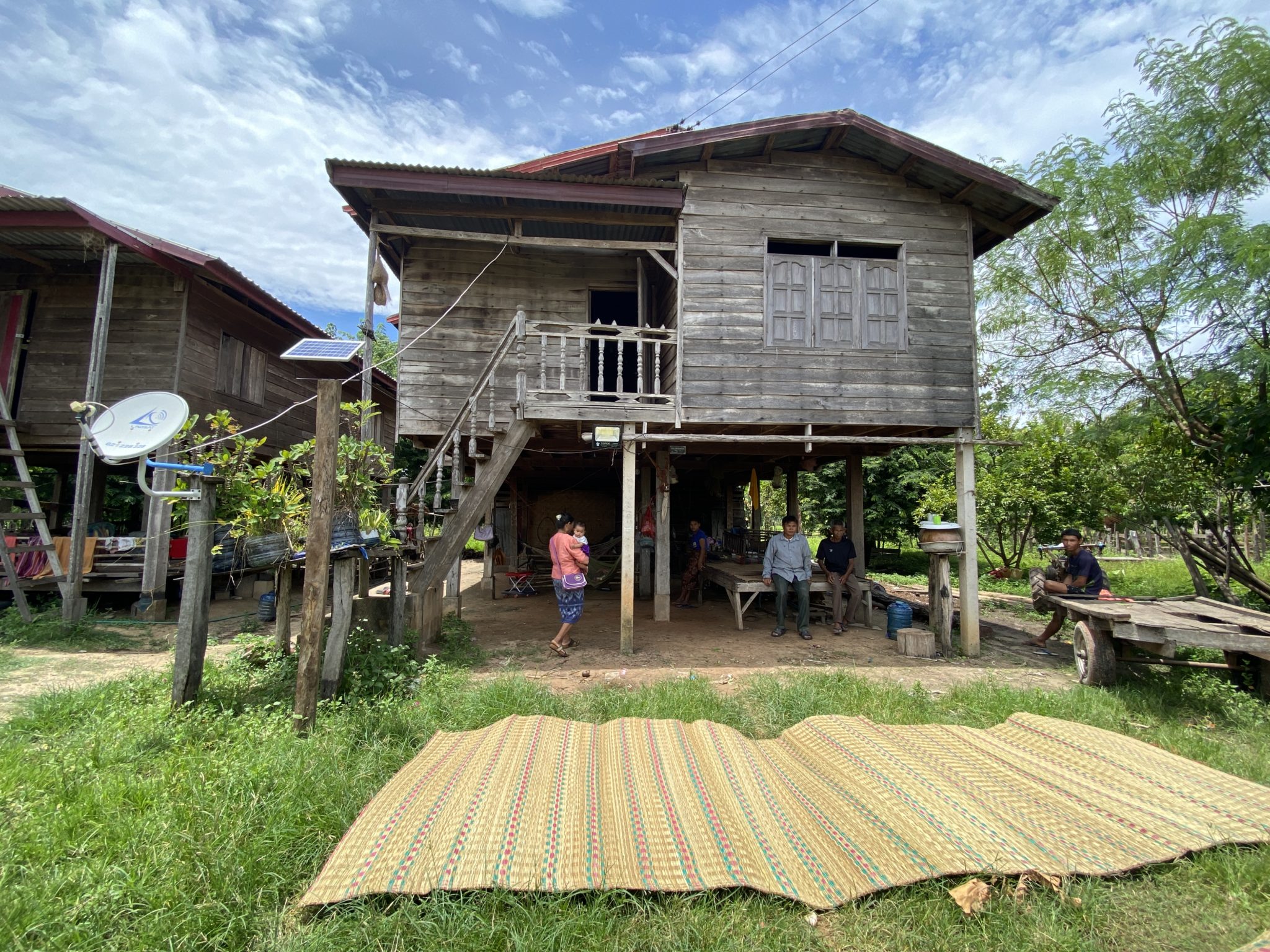
Ecosystem-based adaptation (EbA) is a rapidly growing approach to climate adaptation globally. It is valued for its cost effectiveness, practicality, diverse co-benefits, scalability, and applicability across a multitude of landscapes. This project aimed to place EbA at the research-to-policy interface that strengthens the water-energy-climate nexus and enhance agricultural livelihood resilience Lao PDR.
The project was implemented in Savannakhet Province located along the East-West Economic Corridor (EWEC) that connects Lao PDR with Vietnam in the East and Thailand in the West.
Savannakhet is the largest province in Lao PDR and among the most populous. The agricultural sector in the Province has seen steady development over time, from what was once focused on household food security and subsistence, to the commercialized sector is has now become. However, the province is prone to natural climate-induced hazards, such as floods and droughts, which have negatively impacts the sector and the people who rely upon them.
The project aims to enhance the climate resilience of vulnerable and marginalized groups in Savannakhet Province of Lao PDR by helping minimise the impacts of climate change on agricultural livelihoods through Ecosystem-based Adaptation (EbA).
The project employed analysis of climate-related hazards and simulation of ecosystem services to identify challenges faced by agricultural communities. In conjunction with the scientific analysis, the project engaged locally affected communities and marginalized groups; and held consultations with local government agencies and civil societies to identify potential EbA measures to be practiced in the area as well as identify barriers to EbA implementation and equitable benefit sharing.
Ultimately, the findings of the research and stakeholder engagement were leveraged to influence policymaking at the national level through a national workshop, a policy brief and a peer-reviewed journal article, aiming to facilitate discussion on potential strategies to alleviate barriers for EbA implementation and equitable climate adaptation policies, amplifying the voices and aspirations of affected communities, particularly women, persons with disabilities, and marginalized groups to high-level decision makers.
Project Team


Dr. Indrajit Pal
Associate Professor, DPMM AIT
Principal Investigator

Ms. Oulavanh Sinsamphanh,
Lecturer, NUOL.
Co-Principal Investigator

Dr. Puvadol Doydee
Assistant Professor, KU
Natural Resource

Ms. Soulichan Lamxay,
NUOL
Research Associate

Ms. Sreejita Banerjee
AIT
Research Associate

Ms. Phimmasone Vongvilai
NUOL
Research Associate

Ms. Kobrat Chotruangprasert
MTT
Fellow to AIT

Mr. Jeeten Kumar Bhagnani
AIT
GEDSI Focal point and Research associate
Gallery
News of the Inception Meeting televised in Savannakhet Province’s local news channel on 5 September 2024
